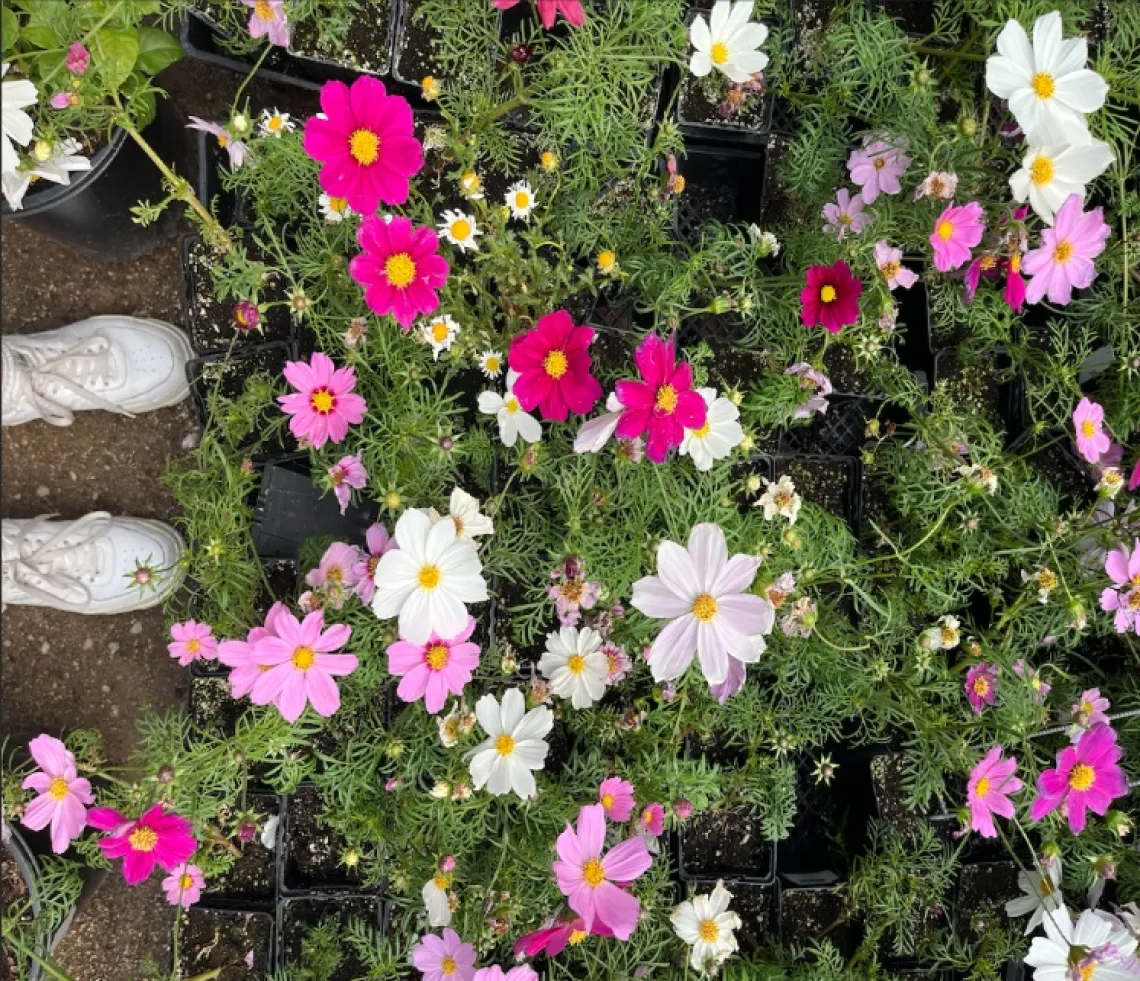The CACTI Blog: Growing into Life—My Experience Interning with Adults with IDD in an Intensive Outpatient Facility

By Amber Chase, 2022-2023 Undergraduate Certificate In Developmental Disabilities
I was lucky enough to be selected as an intern for a local facility that serves the neurodevelopmentally disabled community — an experience I will absolutely never forget. As someone with aspirations to work in the genetic counseling field, I was beyond excited that I was going to get to use this internship to supplement my portfolio for the Sonoran Center certificate program. A chance to work on case management skills in an actual facility setting? It couldn’t get better. For several months, I spent a few days a week with the professional team, the resident members, and their closest supporters in an outpatient residential facility that housed adults with neurodevelopmental disorders.
What made this experience so meaningful was how members (individuals receiving care and support) addressed every point of interest the certificate program had given us, and often did so unintentionally. To them, their disability was of little interest. They were more concerned with the details of their lives and how they might be able to get back into the world safely. They spent hours with me, pointing out differences among their own experiences, asking me questions about how I went through the same issues, and listing things they were excited to get to do. They asked questions to providers so they better understand how to get to the point where they are able to live independently and enjoy their own life. To them, their disability wasn’t the issue, so they didn’t care much. The issue was in their inability to budget, cook, or keep up with hygiene. They understood easily that they may have these issues because of a disability, but not one single member ever identified their disability as the barrier. They remained focused on the ‘adjustable’ symptoms.
These adults had spent their entire lives fighting against system after system that wasn’t built to allow them to succeed. Residential facilities like this one are incredibly important to the disability community because they prevent adults from falling through the cracks in the system and ending up without food, shelter, and care. Many adults with disabilities lose their support system as parents and siblings age. They’re often left with two terrible extremes: commitment to institutional inpatient care or finding some way to survive without a home, medication, or food. Outpatient residential facilities designed to give adults with disabilities a safe space to receive medical care and help build life skills prevent those two extremes.
One of the core goals of the certificate program is to develop interdisciplinary skills in order to efficiently and respectfully work with individuals who are disabled, their families, and the larger community. My time with these individuals forced me to do so — and I’m so happy it did. Rarely do students actually get the chance to assist in meetings between providers, members, and families. This experience gave me a much deeper understanding of what it takes to serve on a supportive care team. I know how to communicate to people who are all focusing on different aspects of care and have various understandings of disability and services. I learned how to prioritize concerns brought up by multiple parties. I’m even better at simply connecting with a wider range of people!
I was nervous to start my career as part of an interdisciplinary team. I was concerned I wouldn’t actually be able to connect to my team and our client, and would somehow miss the client’s own concerns and priorities. This experience dismissed all of those worries. I understand now that it’s okay to be concerned that you won’t be able to support someone perfectly — the important thing is to get to know them and their circumstances! Having a genuine connection with them is the key to being the best you can be.
In the end, I was able to apply all of my previous experiences, personal interests and newly acquired skills into developing a Gardening Group Therapy curriculum for residents, which supports members as they develop new skills and grow into their own lives.

The CACTI Blog features the voices of our interdisciplinary trainees and Community Advisory Council members as they highlight diverse images of people with disabilities and provide community information and advocacy on disability issues. Check Out The CACTI Blog
